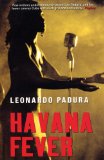Summary | Excerpt | Reviews | Beyond the Book | Readalikes | Genres & Themes | Author Bio

“Of course, lots of people are on the make. But I’d like to know
why you’ve decided to sell the books now . . .”
Dionisio looked at his sister, as if he didn’t understand: how
could the fellow be stupid enough to ask such a question? The
Count cottoned on and, smiling, tried to refocus his curiosity for
a third time.
“Why did you wait until now to decide to sell them?”
The transparent woman, perhaps stirred by the urgency of her
hunger, was the one who rushed to reply.
“It’s Mummy. Our Mother,” she explained. “She agreed to look
after these books years ago . . .”
The Count felt he was treading on typically swampy ground, but
with no choice but to press on.
“And your Mother?. . .”
“She’s still alive. She’ll be ninety-one this year. And the poor
thing is . . .”
Conde didn’t dare keep on: the first part of the confession was
on its way and he waited in silence. The rest would come of its
own accord.
“The old girl’s past it . . . she’s been a bundle of nerves for a
long time. And the fact is we need some money,” spat Dionisio
waving at the books. “You know what things are like these days, the
pension goes nowhere . . .”
Conde nodded: yes, he did know about that. His eyes followed
the man’s hand towards the shelves crammed with books and he
felt the hunch that he was on the verge of something big, still there,
rudely pricking him under the nipple, making his hands sweat. He
wondered why it hadn’t gone away. He knew he was surrounded by
valuable books, so why should the alarm-call still sound so loudly?
Could it be there was a book that was too much to hope for? That
must be it, he told himself, and if that were true it would only stop
when he’d inspected every shelf from top to bottom.
“I’ve no wish to pry, but . . . But when was the last time anyone
touched this library?” he asked.
“Forty . . . Forty-three years ago,” the woman answered and the
Count shook his head incredulously.
“Hasn’t a single book left here in all that time?”
“Not one,” interjected Dionisio, confident he was upping
the value of the library’s contents by making such a statement.
“Mummy asked us to air it once a month and clean it with a feather
duster, just along the tops . . .”
“Look, I’ll be frank with you,” Mario Conde decided to issue a
warning, aware he was about to betray the most hallowed rules
of his profession: “I have a hunch, in a manner of speaking. I’m
quite sure there are books here worth lots of money, and others
so valuable that they can’t or shouldn’t be sold . . . If I might
explain myself: there could be books, particularly Cuban books,
that shouldn’t leave Cuba and almost nobody in Cuba has the
money to pay out what they’re really worth. The National Library,
for a start. And what I’m telling you now goes against my own
business interests, but I believe it would be a crime to sell them to
a foreigner who’d only take them out of the country . . . and I say
a crime because it would be more than unforgivable, it would be a
felony, and that’s the least of it. If we can agree terms, we can do
business with the saleable books, and if you then decide to sell the
more valuable books, I’ll get out of your way and . . .”
Dionisio stared at the Count with unexpected intensity.
“What did you say your name was?. . .”
“Mario Conde.”
“Mario Conde,” he chewed on the name slowly, as if extracting
from the letters an injection of dignity his blood sorely needed.
“Standing where you can see us now, my sister and I have really
run ourselves into the ground over this country, in a big way. I
risked my life here and even in Africa. And although I’m starving
to death I won’t do anything like that . . . Not for a thousand or ten
thousand pesos,” and he turned to look at his sister, as if seeking
out a last refuge for his pride. “Will we, Amalia?”
Excerpted from Havana Fever by Leonardo Padura Copyright © 2009 by Leonardo Padura. Excerpted by permission of Bitter Lemon Press. All rights reserved. No part of this excerpt may be reproduced or reprinted without permission in writing from the publisher
Harvard is the storehouse of knowledge because the freshmen bring so much in and the graduates take so little out.
Click Here to find out who said this, as well as discovering other famous literary quotes!
Your guide toexceptional books
BookBrowse seeks out and recommends the best in contemporary fiction and nonfiction—books that not only engage and entertain but also deepen our understanding of ourselves and the world around us.